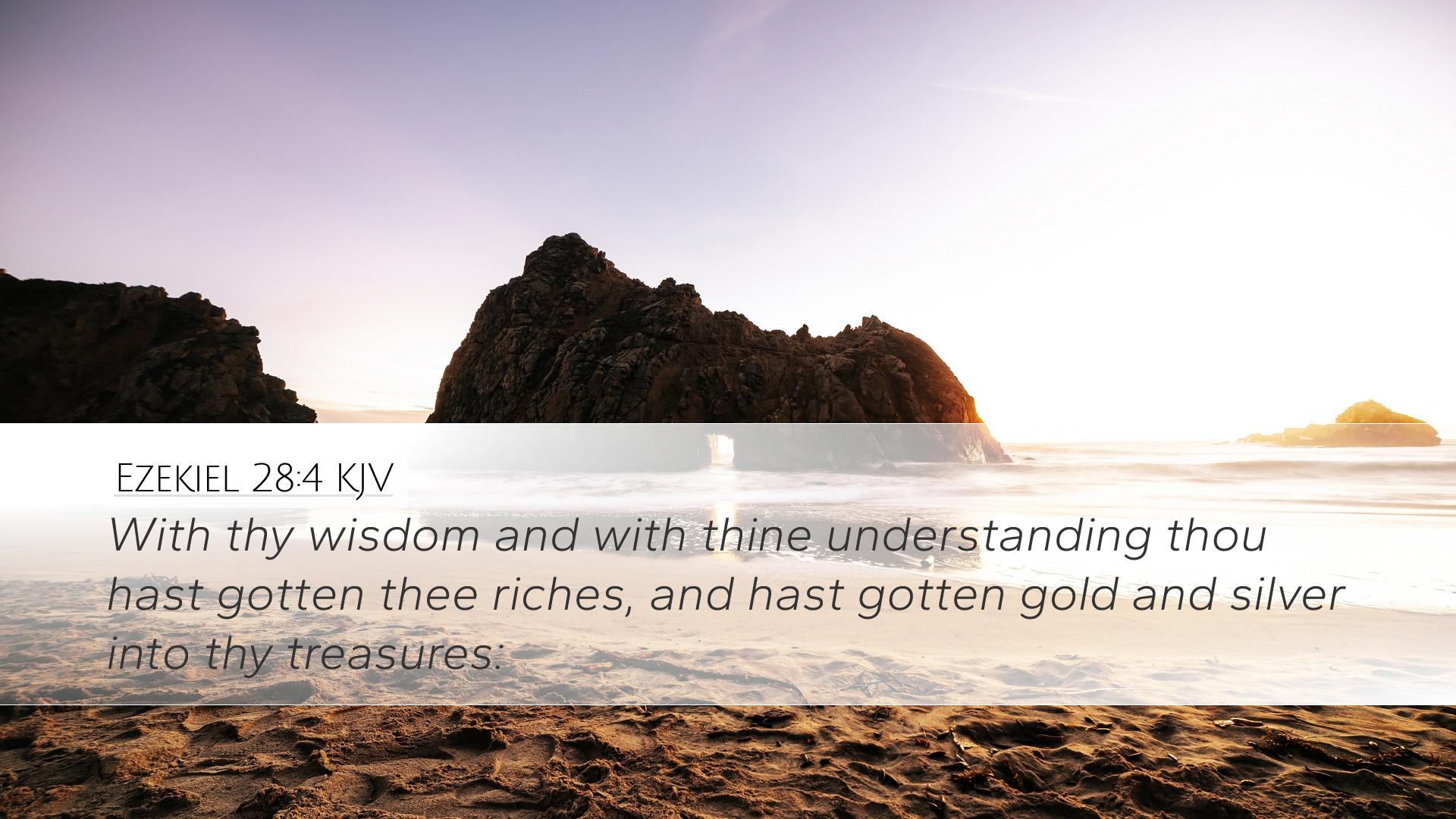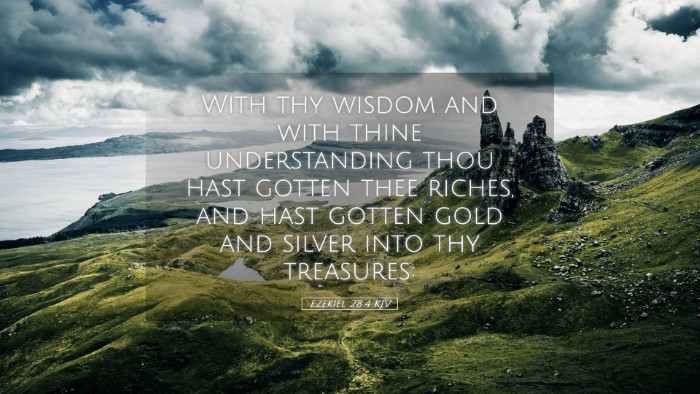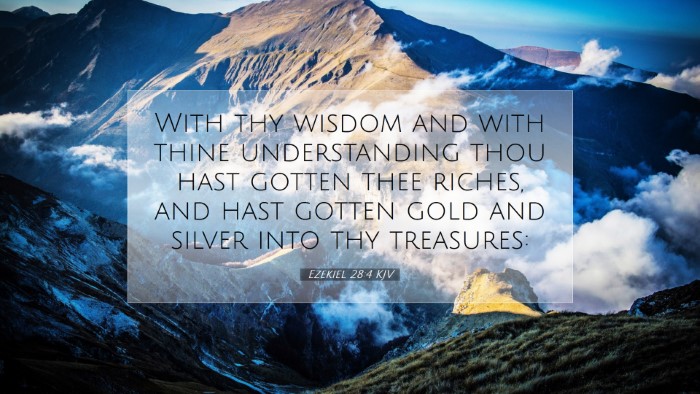Ezekiel 28:4 - A Comprehensive Commentary
Ezekiel 28:4 states:
"With your wisdom and your understanding, you have gained riches for yourself and gathered gold and silver into your treasuries."
This verse is part of a passage that discusses the fall of a figure traditionally interpreted as the King of Tyre. It has often been applied theologically to represent the pride and downfall of Satan himself. The following commentary provides insights drawn from various public domain sources.
Contextual Analysis
The context of Ezekiel 28 is crucial for understanding the deeper implications of verse 4. It addresses the arrogance and utter downfall of the King of Tyre, metaphorically depicted as a cherubic being. This juxtaposition illustrates the contrast between his exalted position and his tragic end.
Historical Background
The King of Tyre, often identified with the wealthy and influential trading city of Tyre, demonstrates the hubris of earthly powers. His wealth was acquired through cunning and intelligence, yet ultimately, he misused these gifts, leading to divine judgment.
The Essence of Wisdom and Understanding
The terms “wisdom” and “understanding” in this verse are significant:
- Wisdom: This refers to practical insight, the ability to apply knowledge in a righteous manner.
- Understanding: This implies discernment, the capacity to comprehend complexities and make sound judgments.
Matthew Henry emphasizes that these traits, when disconnected from humility and the fear of the Lord, can lead to pride and ultimate downfall. While such attributes might lead one to think they are secured in their achievements, they can blind one to the impending judgment from God.
The Accumulation of Wealth
In the latter part of verse 4, the gathering of riches becomes the focal point for discussion:
- Riches as a Symbol: Albert Barnes notes that wealth often symbolizes power and influence in biblical texts. The King of Tyre's riches signify not only material accumulation but also the spiritual blindness that can accompany such wealth.
- Divine Ownership: Adam Clarke elucidates that all riches belong to God; thus, when mortal beings accumulate wealth without acknowledgment of the divine source, it leads to spiritual peril.
Theological Implications
This text serves as a profound reflection for theologians and scholars, highlighting several key themes:
- Pride Before Destruction: Proverbs 16:18 reinforces the idea that pride is often a precursor to a fall, a theme echoed in this passage.
- Wealth and Accountability: Believers are reminded that the accumulation of wealth is not inherently wrong but carries with it a weighty responsibility to use it for God's glory rather than personal gain.
- Divine Justice: The narrative showcases God's ultimate sovereignty and justice as He does not overlook pride or the exploitation of power.
Lessons for Contemporary Believers
Pastors and students of the Bible can draw several vital lessons from Ezekiel 28:4:
- Humility in Success: Success must be accompanied by a spirit of humility, recognizing that all good things come from God.
- The Dangers of Materialism: The scriptural warning against materialistic pursuits emphasizes the importance of prioritizing spiritual wealth over earthly treasures.
- Awareness of Accountability: Believers must foster a continuous awareness of their accountability before God, recognizing that every action and decision is observed and judged by Him.
Conclusion
Ezekiel 28:4 serves as a rich tapestry of warnings and insights drawn from the experience of the King of Tyre, illustrated through the lens of wisdom, wealth, and the nature of pride. By studying this verse, pastors, students, and theologians are encouraged to reflect on their lives, their use of gifts, and the profound implications of their earthly pursuits. In a world where materialism often reigns, this passage calls for a recalibration of priorities toward kingdom values.


